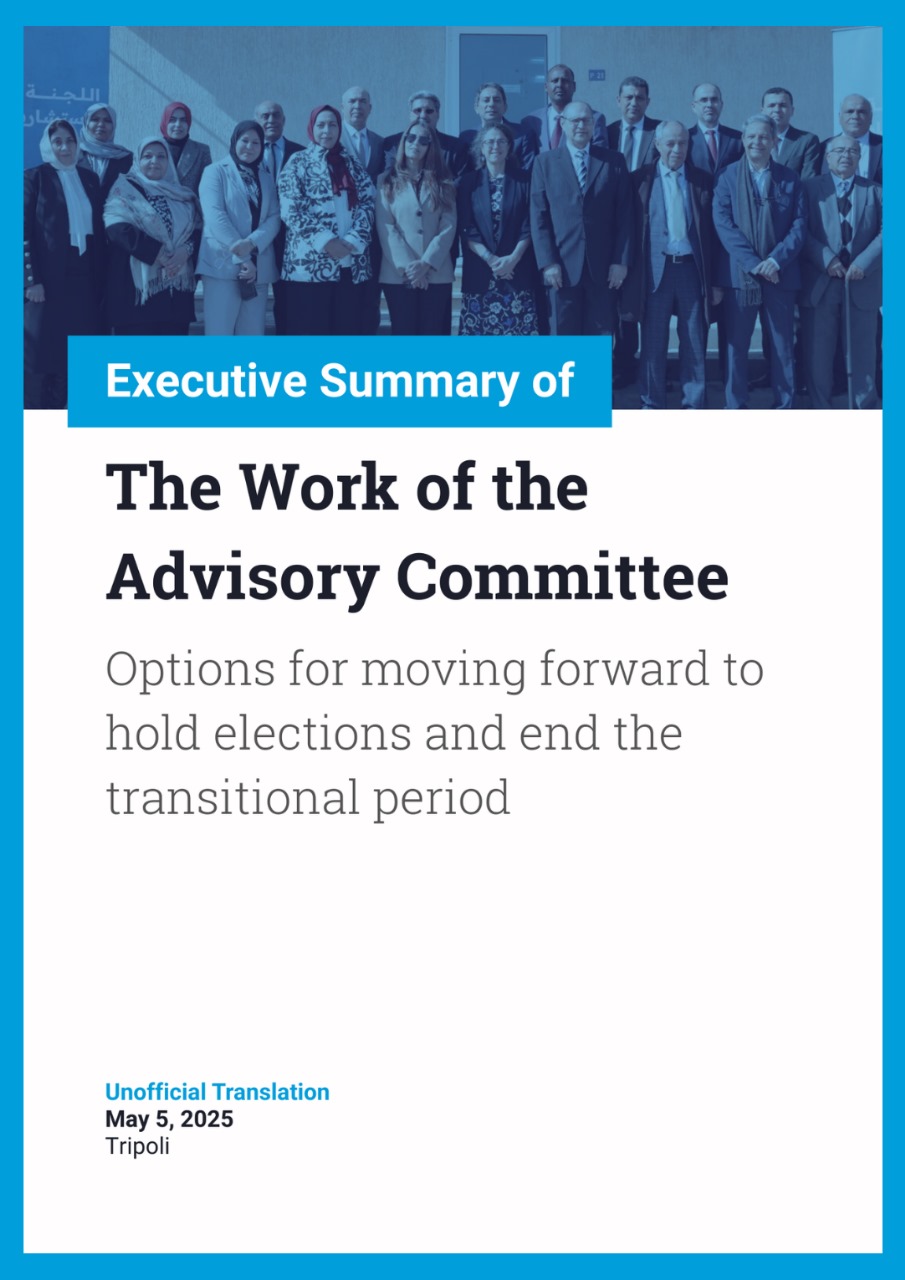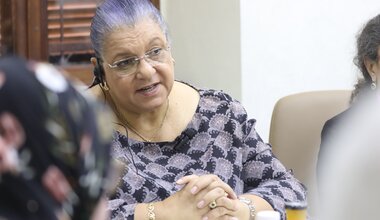Opening Remarks of DSRSG-RC/HC Georgette Gagnon Conference on supporting an inclusive, rights-based and victims-centred transitional justice and reconciliation process
TRIPOLI - 26 February - Excellencies, Vice-President Al-Lafi, distinguished guests and colleagues,
On behalf of the UN in Libya, UNSMIL and the UN Human Rights Office, I am honoured to join you here today. I congratulate the Presidency Council and Vice-President Al-Lafi for his support in organising this inclusive conference with UNSMIL.
We sincerely thank the Swiss Federal Department of Foreign Affairs who have generously funded this important meeting.
I also thank our three international experts who travelled from afar to participate in this conference. I am confident all of us will greatly benefit from their experience, knowledge and wisdom.
This conference is of the utmost significance, as it comes just weeks ahead of the planned national reconciliation conference in Sirt. I reiterate that the United Nations is committed to supporting people in Libya in promoting a rights-based reconciliation process that is inclusive, transparent and grounded in the principles of transitional justice. It is in that spirit that we have convened this forum to facilitate greater outreach, awareness, and support, between the Presidency Council, that is leading the national reconciliation process, and victims of human rights violations, for whom justice and reparations have remained elusive. Their views, their needs, their demands, must be heard and at the heart of the reconciliation process.
As you are aware, divisions and political differences in the country have stalled Libya’s transition. It is therefore all the more heartening to see so many Libyans – from all over the country, representing diverse groups and constituencies – gathered here today around a common objective: peace, justice, and reconciliation.
As we have seen from many other country experiences, meaningful, inclusive, and rights-based reconciliation that addresses the legitimate grievances of the past, the root causes and drivers of conflict, including widespread violence, human rights violations, and cycles of impunity, is a critical foundation for a peaceful, just, and inclusive society.
Addressing widespread atrocities can lead to sustainable peace and reconciliation. Failure to do so feeds cycles of revenge between communities and undermines the political process itself. We are therefore encouraged by this conference’s focus on accountability, international practices around the issue of amnesties, and importantly, the participation of victims.
Victims and their families who have endured unspeakable horrors and immense suffering must be at the centre of all efforts towards reconciliation. Their calls for justice and accountability and their right to the truth must be honoured. We reiterate there can be no reconciliation without justice, and there is no justice without truth, reparations, and guarantees of non-repetition.
For the national reconciliation process to be inclusive, women, youth, marginalized groups, displaced persons, all Libyan cultural components and civil society representatives must be included at every stage. We welcome here today many of these representatives and expect their numbers will increase as the process moves forward. We also expect the recommendations formulated during these two days will be integrated and determine next steps in the process.
The issues here are sensitive, numerous, painful, and complex and the long road ahead will be arduous. With principled leadership, however, we are convinced that Libyans can secure the building blocks necessary to address the country’s long legacy of conflict and violence and fulfil Libyans’ aspirations for lasting peace, stability, inclusive and sustainable development, and ultimately a better future for all.
The United Nations remains ready to support you in the next steps of this process. I wish you a very successful conference.
 United Nations Peacekeeping
United Nations Peacekeeping UN
UN








